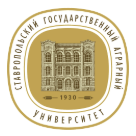Introduction to Stavropol State Agrarian University
Founded in 1930, Stavropol State Agrarian University is located in Stavropol, Russia. It is a higher education institution focusing on agricultural sciences and plays an important role in the cultivation of agricultural talents in Russia.
Overview
Student size: more than 14,000 students.
Faculty: more than 700 faculty members, including 15 doctoral students, 24 postgraduate students, 11 professors, 32 associate professors and 8 academicians of the Academy of Agricultural Sciences.
History
In 1930, the school was one of the four educational institutions established due to the reorganization of the Moscow Animal Husbandry Institute. In 1933, the Krasnodar Sheep Breeding Institute and the Taganrog Dairy and Beef Cattle Breeding Institute departments joined, and the school was renamed the North Caucasus Animal Husbandry Institute. In 1940, it became the Sheep Breeding Institute of the All-Union People's Commissariat of Agriculture. In 1970, the Institutional Preparatory Department was established. In 1976, the school was awarded the Order of the Red Banner of Labor for its contribution to the training of high-quality agricultural experts and the application of scientific achievements in agricultural production. In 1994, the State Committee on Higher Education decided to transform it into the Stavropol State Agricultural Academy. In 2001, the college was renamed Stavropol State Agricultural University.
School Strength
Teaching Achievements: Over the past century, it has trained a large number of high-quality experts for the agro-industrial complex and related industries.
Scientific Research Strength: The school's scientific research centers include 90 innovation laboratories and centers, the "Univer Agro" Science and Technology Park, the "Agrus" Publishing Group, etc., and have achieved many results in major scientific research fields such as agricultural ecology, plant protection, and agricultural mechanization, and have undertaken a large number of basic and applied research projects sponsored by the government and private customers.
International Cooperation: The school has participated in many international projects, and has cooperation and exchanges with European higher education and universities in the United States, Canada, Japan, South Korea and other countries. All majors offer international courses, providing students with broad international exchange and learning opportunities.
Institutional Nature
Public University.
Educational Philosophy
Committed to becoming a leader in advanced training of agricultural elites, training students to effectively implement innovation, technology and digital transformation tools for the agro-industrial complex, and contribute to the sustainable spatial development of southern Russia, while paying attention to protecting and improving the moral, cultural and scientific values of society.
Key Laboratories and Disciplines
Key Laboratories: The school has 90 Innovation laboratories and centers, "Univer Agro" Science Park and other scientific research platforms provide advanced experimental conditions for research in agriculture-related fields.
Key disciplines: Agronomy, animal husbandry, and veterinary medicine are the school's traditional advantageous disciplines. In addition, agricultural economics, agricultural mechanization, plant protection and other disciplines also have strong strengths.
Faculty
The school has a total of 19 colleges, including the Department of Agriculture and Biology, the Department of Agricultural Engineering, the Department of Economics, the Department of Animal Science, the Department of Food Science, the Department of Water Conservancy Engineering, the Department of Forestry and Horticulture, the Department of Chemistry and Biology, the Department of Civil Engineering, the Department of Land Management, and the Department of Wildlife and Plant Protection.
Ranking
In the 2024 ranking, the school ranked 227th in China and 6150th in the world.
Cost
No clear specific cost standards have been found.
Campus
Teaching facilities: There are complete teaching facilities such as research libraries on campus, providing students with good learning resources.
Living facilities: The school is equipped with corresponding living facilities to provide students with comfortable living and living conditions.
Campus Culture: The school pays attention to the construction of campus culture, has a positive learning atmosphere and sharing spirit, emphasizes teamwork and mutual help, and regularly organizes various cultural activities, such as concerts, drama competitions, sports competitions and team activities, to enrich students' campus life.
-

Peter the Great St.Petersburg Polytechnic University
-
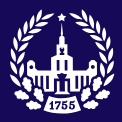
Moscow State University M. V. Lomonosov
-
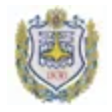
Bauman Moscow State Technical University
-
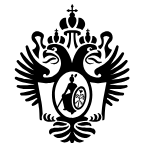
St. Petersburg State University
-

Tomsk State University
-

Peoples' Friendship University of Russia
-

Don State Technical University
-
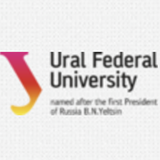
Ural Federal University
-

Moscow Institute of Physics and Technology
-
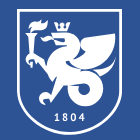
Kazan Federal University
-

Mesoamerican University
-

Istmo University
-

Mariano Galvez University of Guatemala
-

Regional University of Guatemala
-

Galileo University
-

Francisco Marroquín University
-

Rafael Landívar University
-

University of the Valley of Guatemala
-

University of San Carlos of Guatemala
-

Technological Institute of Tlaxcala Plateau
-

Golfo University
-

Technological University of South Sonora
-

Technological University of Huejotzingo
-

Tizimín Institute of Technology
-

Chilpancingo Institute of Technology

